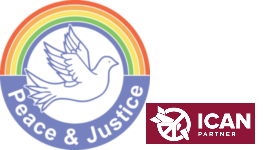Last year Italy’s Mare Nostrum operation in the Mediterranean saved 100,000 lives. But UK Home Secretary Theresa May argued that the programme encouraged “migrants” to make the perilous journey in overcrowded unseaworthy vessels and EU funding for the programme was cut.. The dramatic increase in people risking their lives this spring however proves her wrong. People make the voyage because they are desperate, not to get to Europe but to get away from the situation they are in.
By withdrawing support for Mare Nostrum the EU was responsible for the sharp increase in deaths at sea. Following the death of 900 refugees in April the EU had to be seen to act. So it tripled funding to the European border agency Frontex, decided for the first time to take military measures to destroy boats that people traffickers might use, and created a new “rapid-return programme” whereby all but 5,000 of an anticipated 200,000 “irregular migrants” who survive the journey will be sent back.
Shoring up Frontex was reported as a “search and rescue” plan. But the Frontex mission remains protecting European borders. It will continue to patrol the coastal waters off Italy and Malta while boats laden with refugees frequently get into trouble further out at sea. Indeed the Head of Frontex insisted its mission could not include search and rescue under maritime law.
Thus there remains a huge gap where more refugees are bound to lose their lives in international waters. And it is unclear how the destruction of traffickers vessels can be achieved. For a start that may require a U.N. mandate in the absence of a viable Libyan government. Medecins Sans Frontieres said “Focusing on keeping people out by cutting their only existing routes is only going to push people fleeing for their lives to find other routes, potentially even more dangerous.”
Europe must urgently establish an operation, along the lines of Mare Nostrum, with a clear mandate to save lives as the first priority. High Commissioner Guterres wrote “We have an unambiguous legal obligation to protect” those fleeing conflict and persecution. Europe has a clear moral obligation to prevent the inevitable recurrence of these disasters. It must open safe legal routes and provide opportunities for people fleeing conflict and persecution a chance to request asylum where they are so they will be less likely to risk the crossing to Europe. Ultimately what is needed is long-term solutions, alleviating poverty and resolving conflict in the Middle East and Africa. But this will not be accomplished as long as UN Security Council member states, especially Russia, the US and the UK continue to provide weapons to repressive regimes and arm rebel groups.

